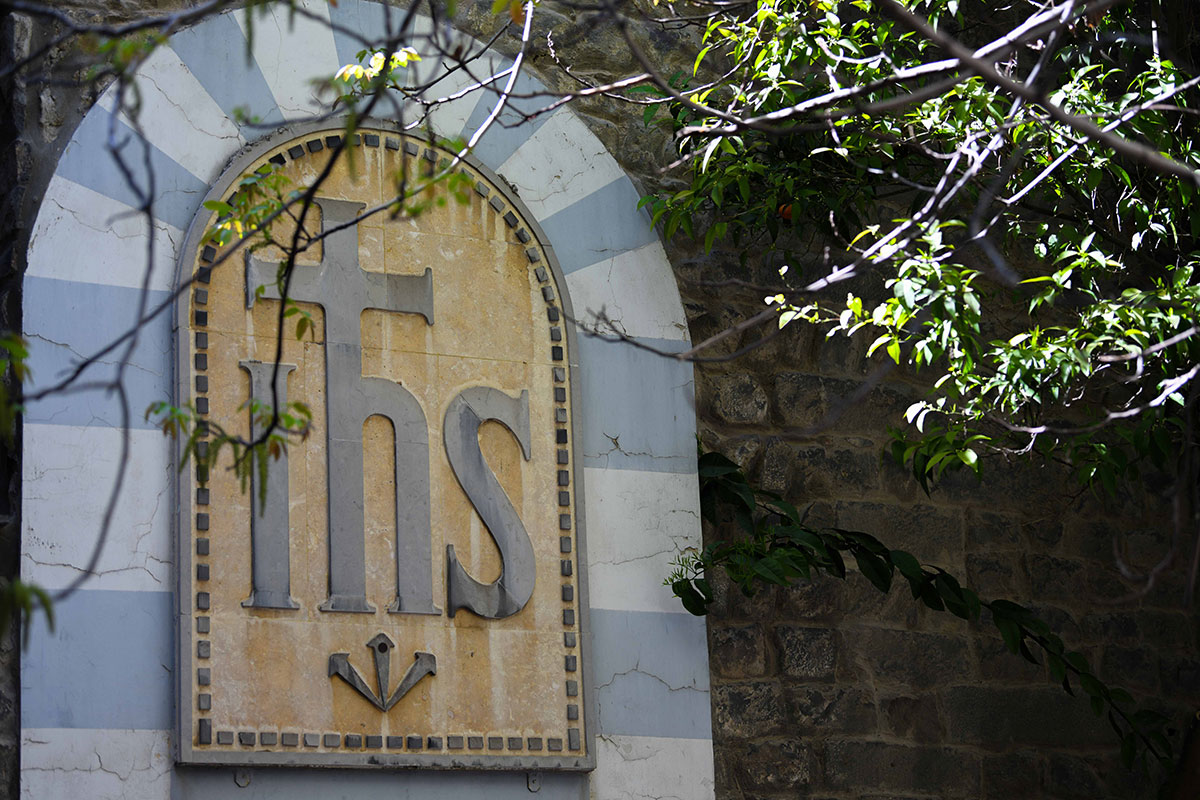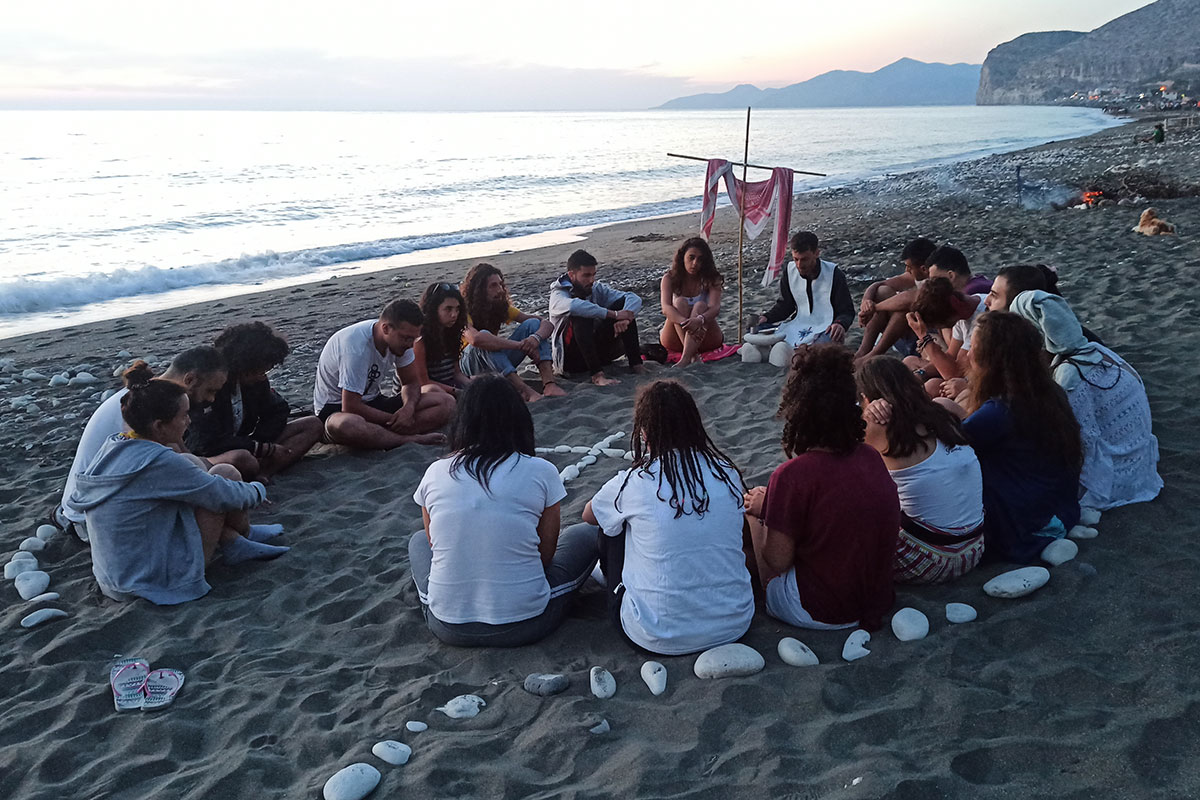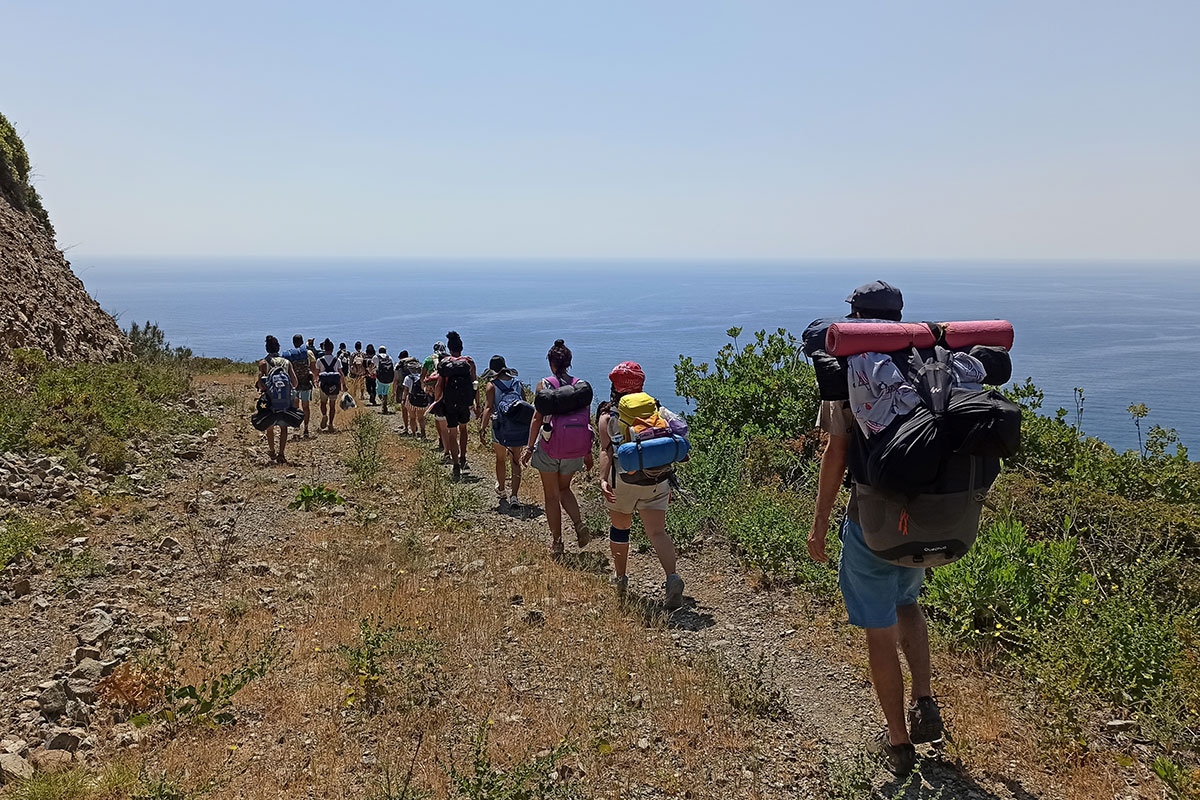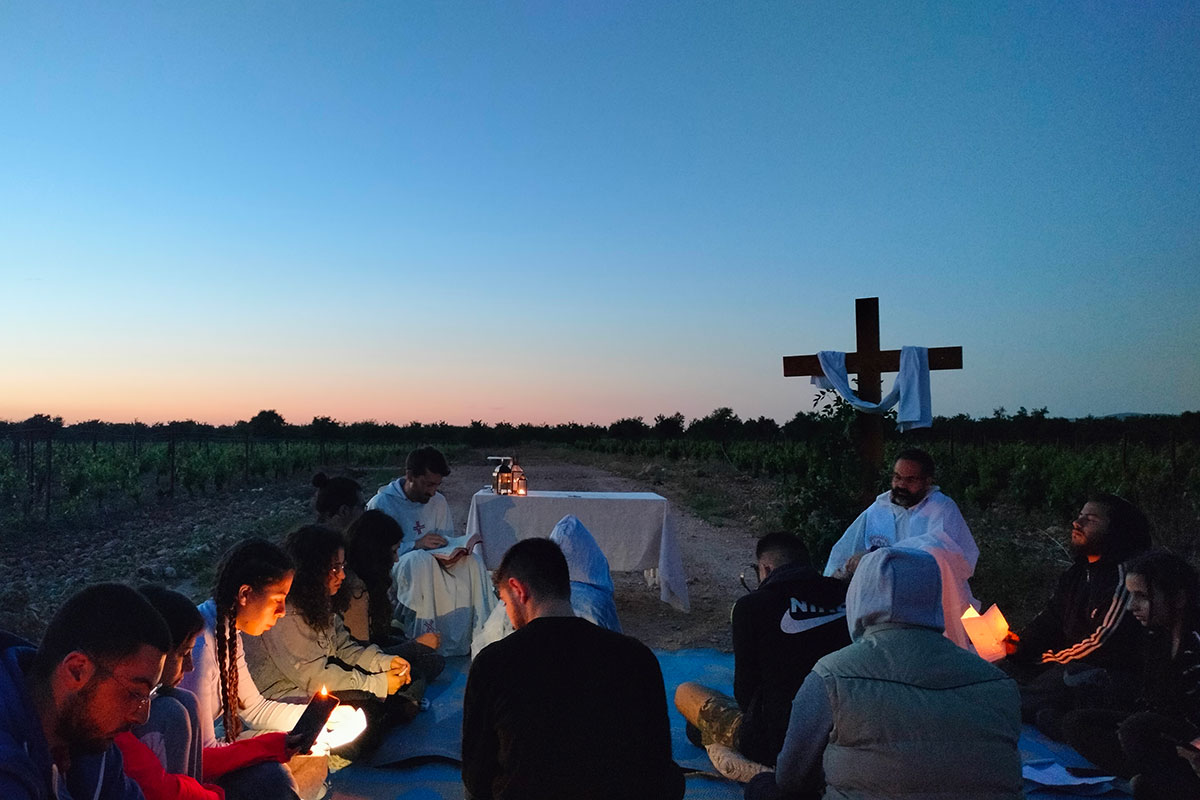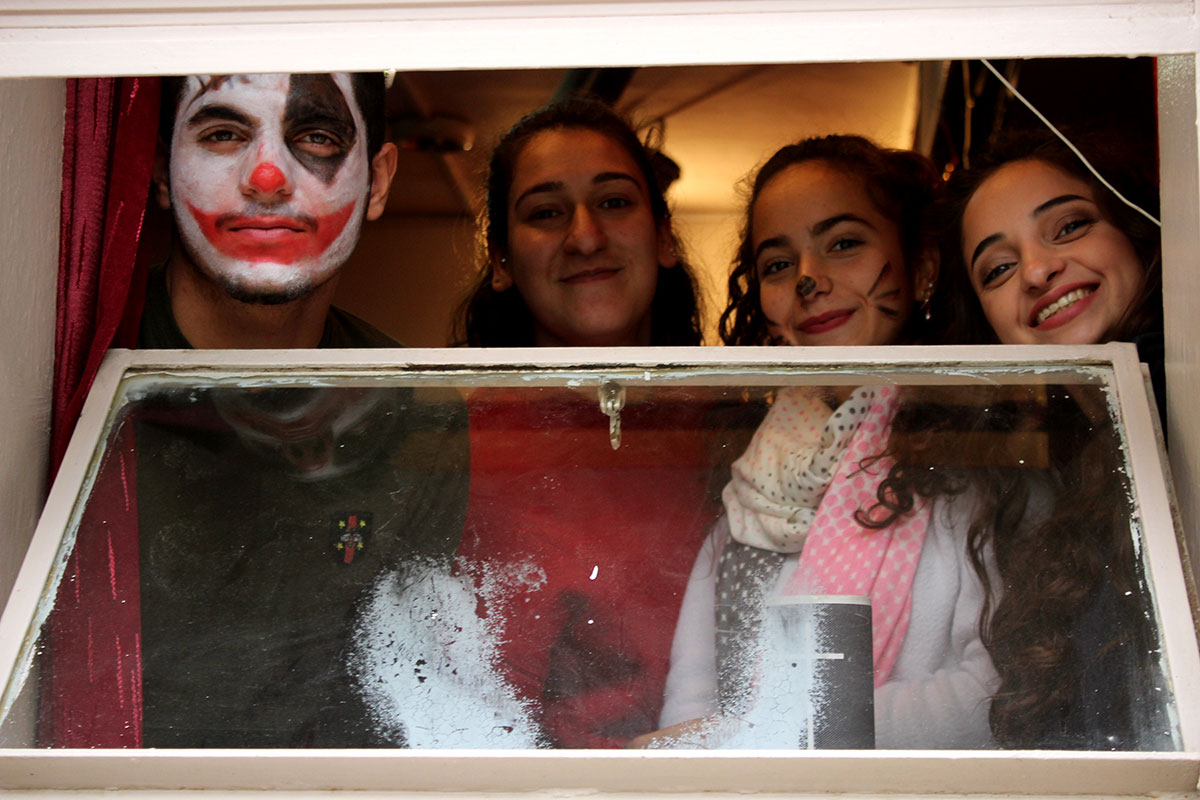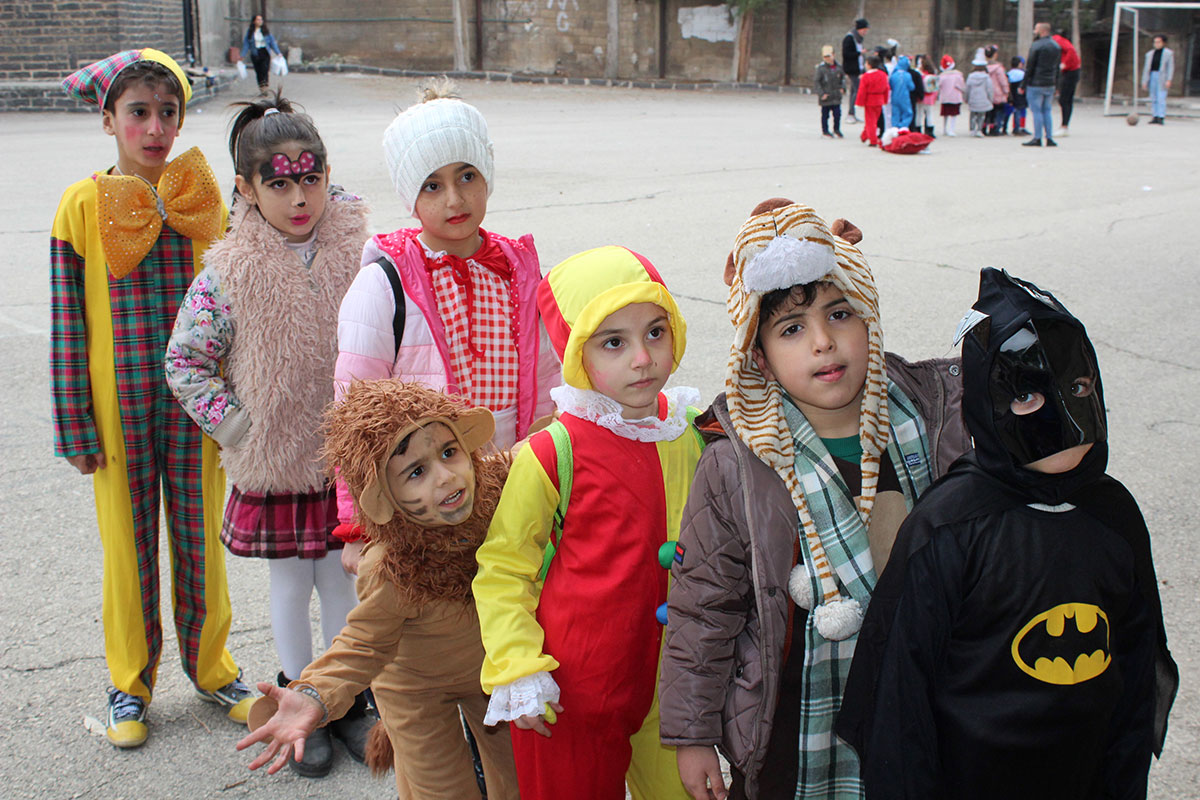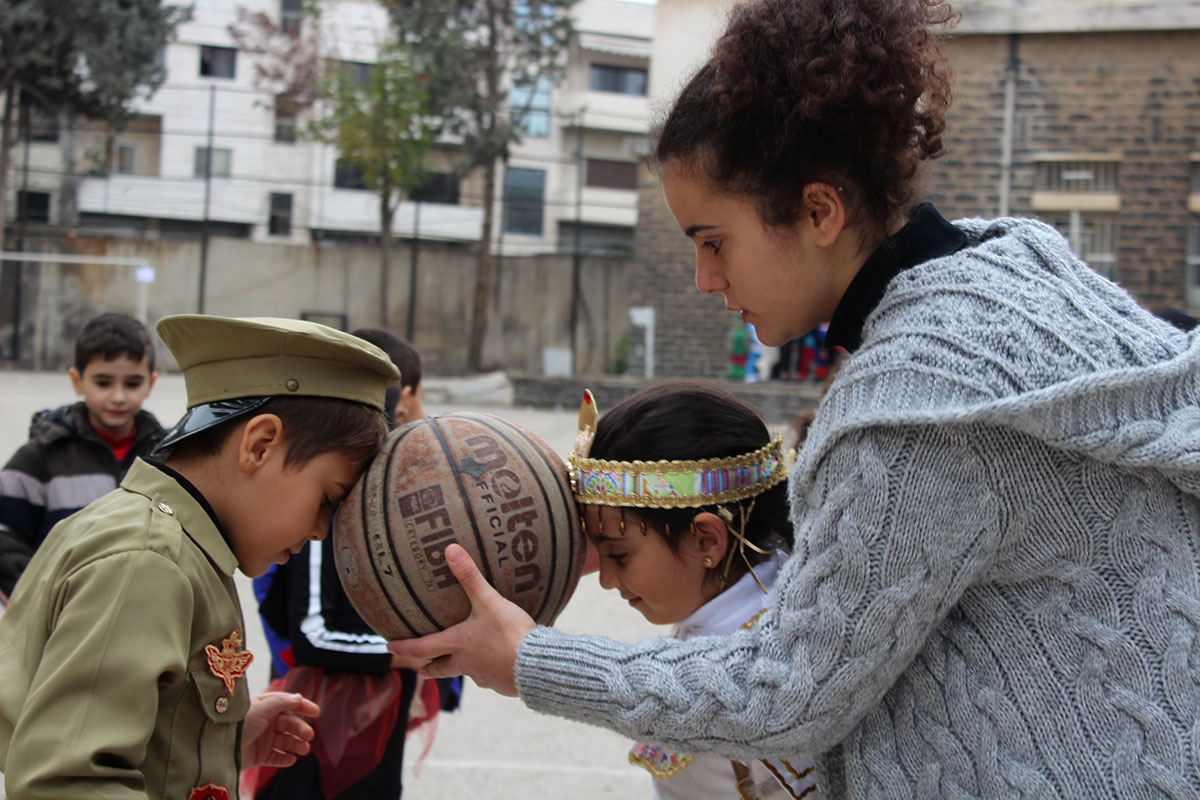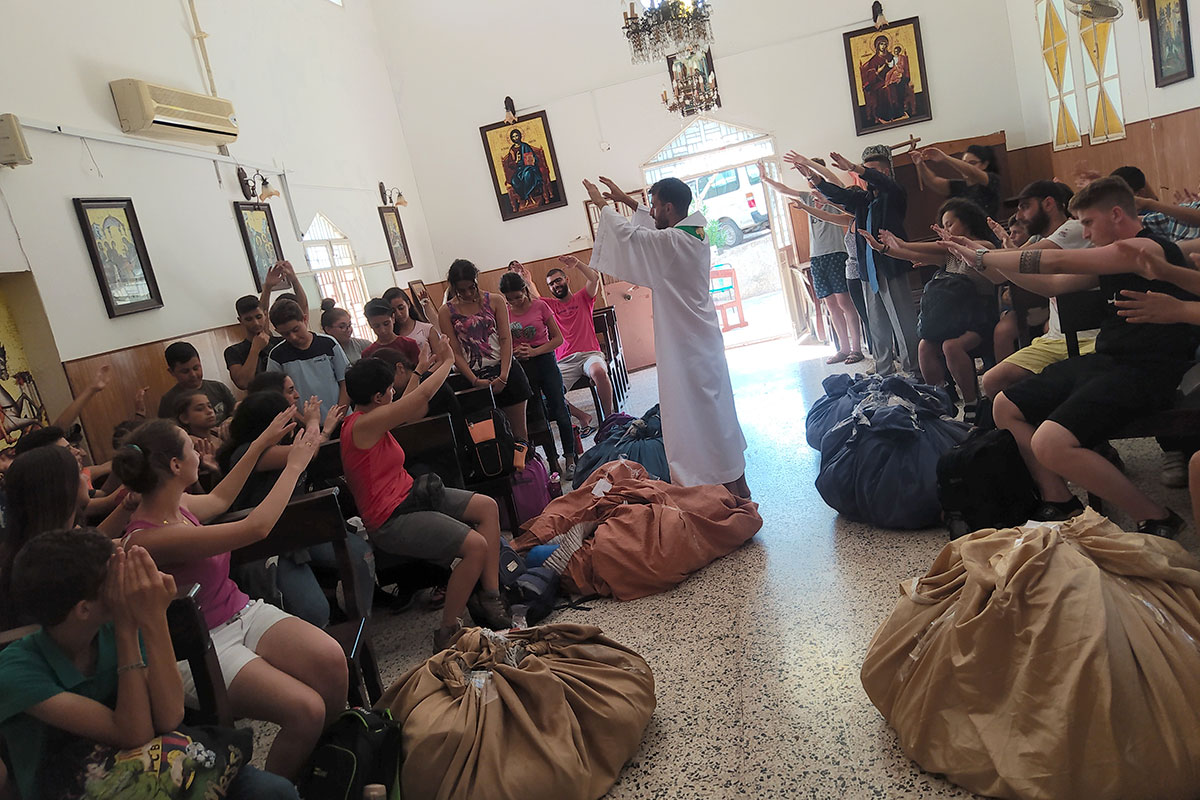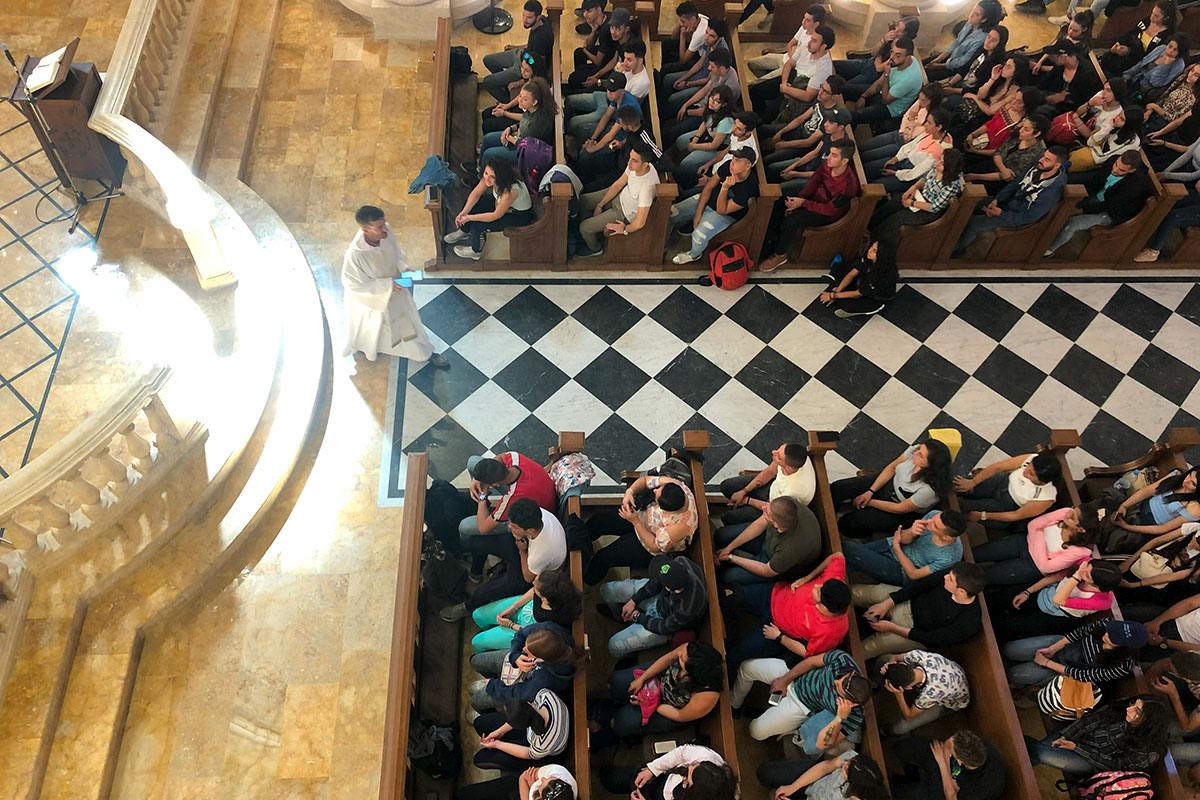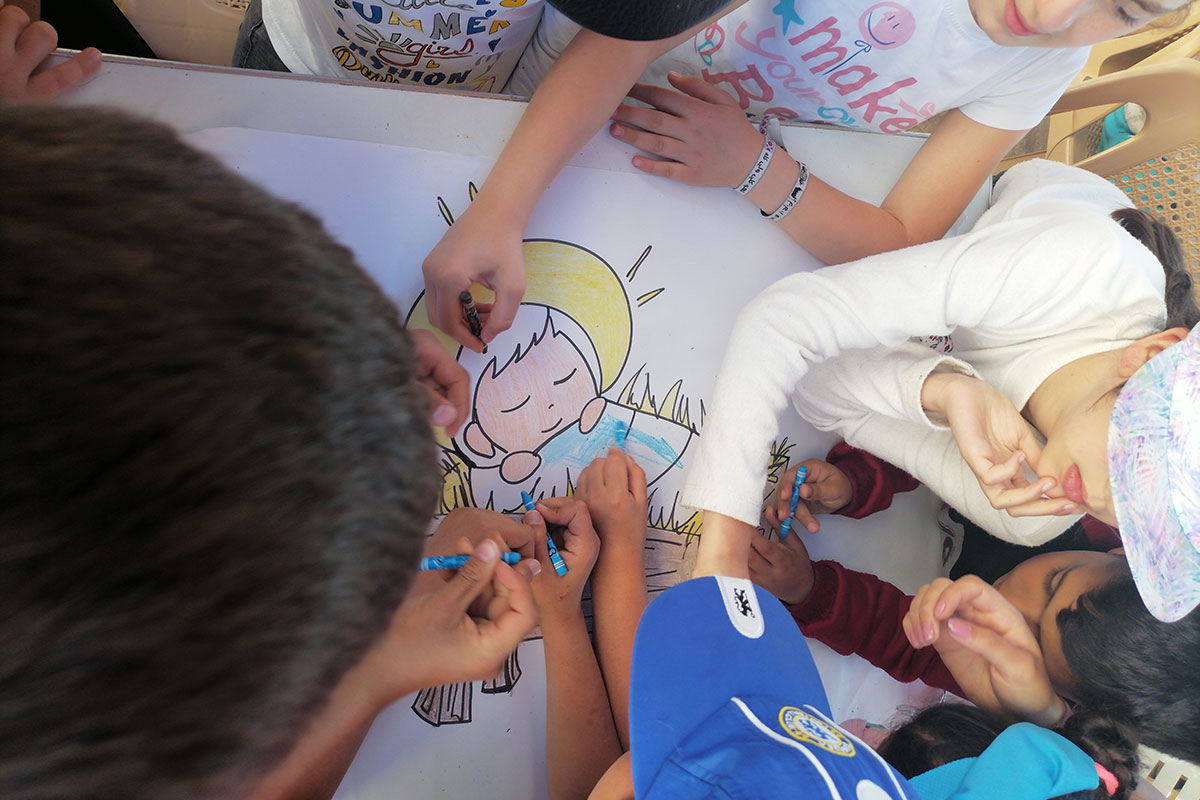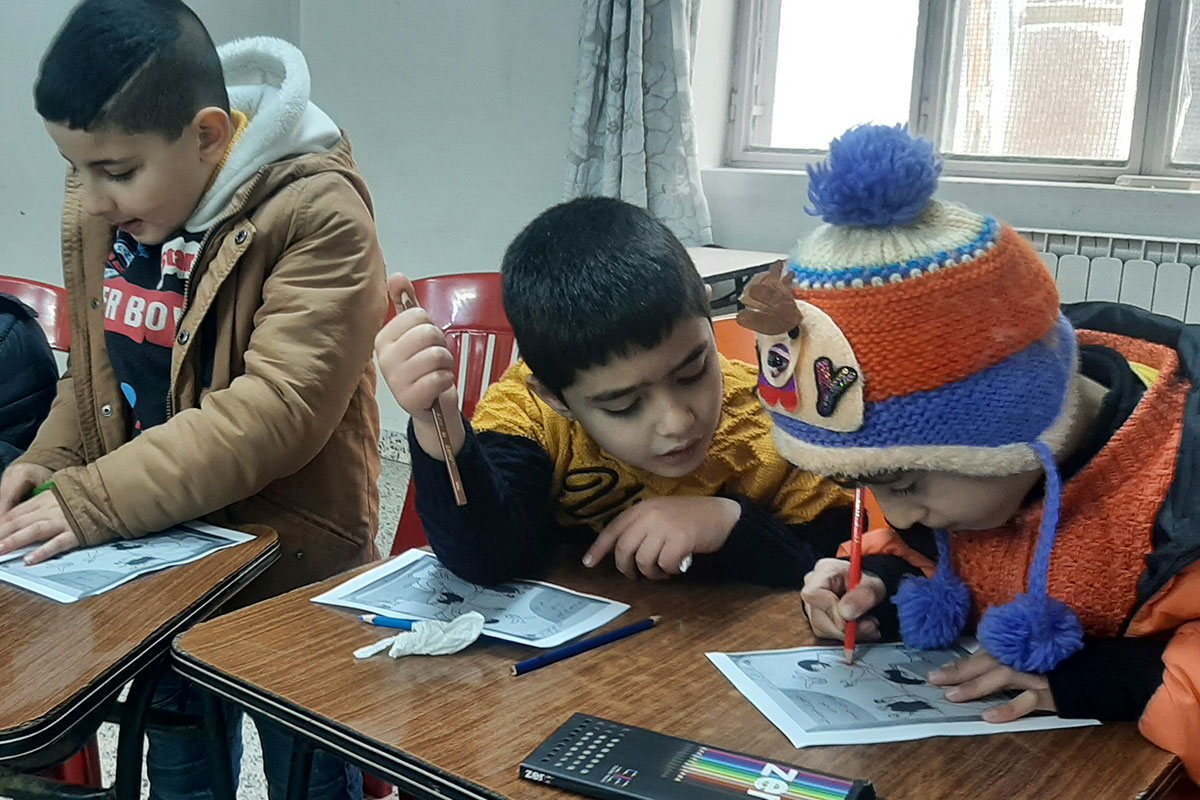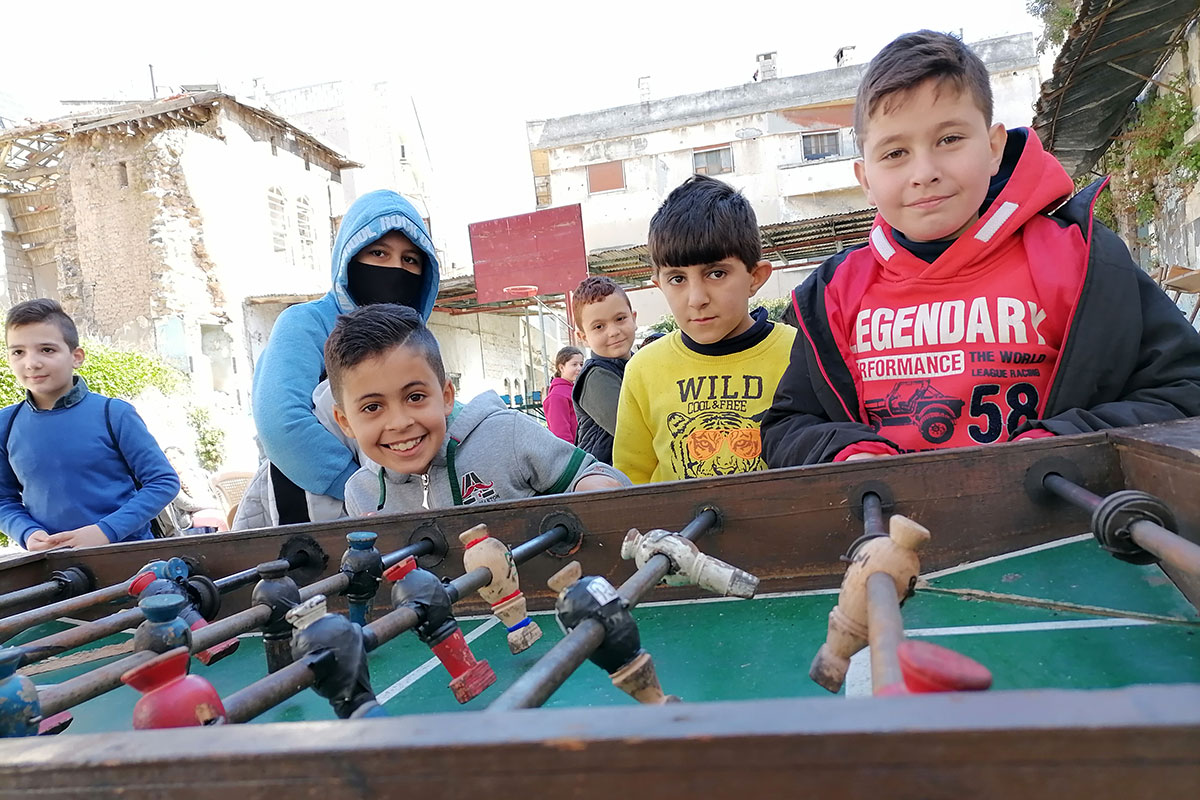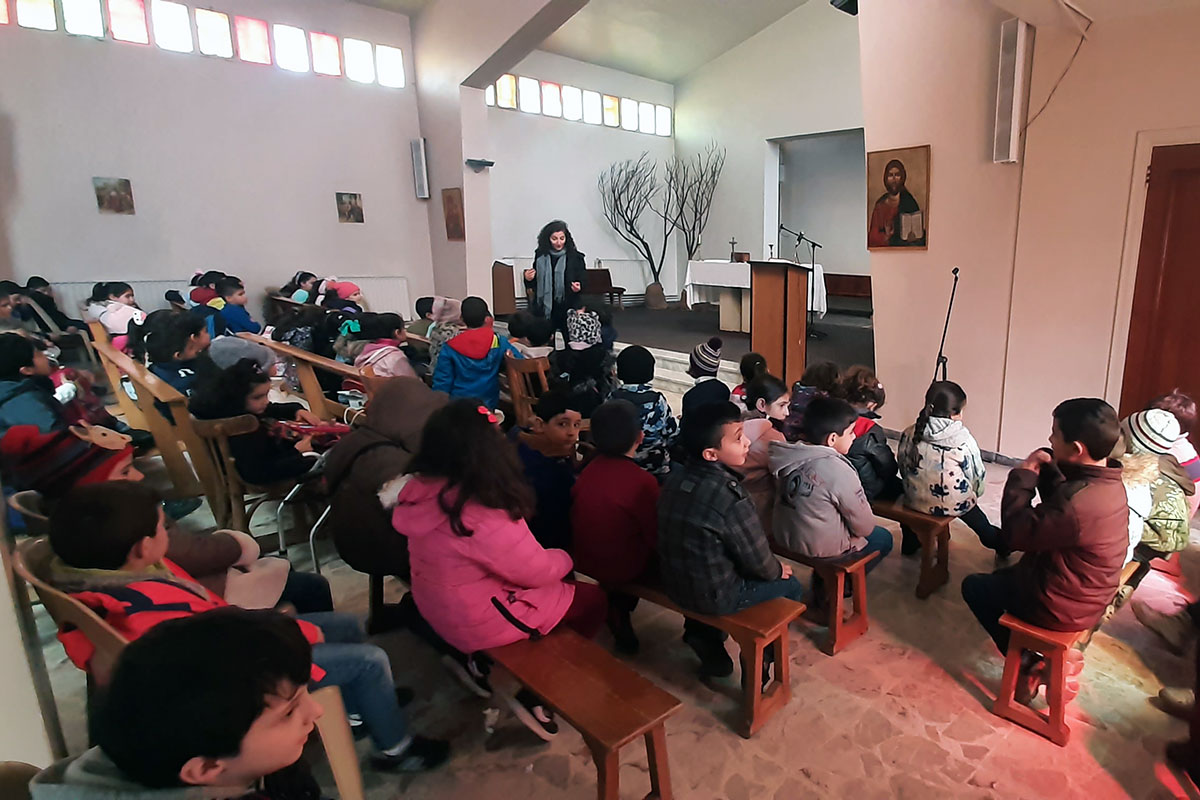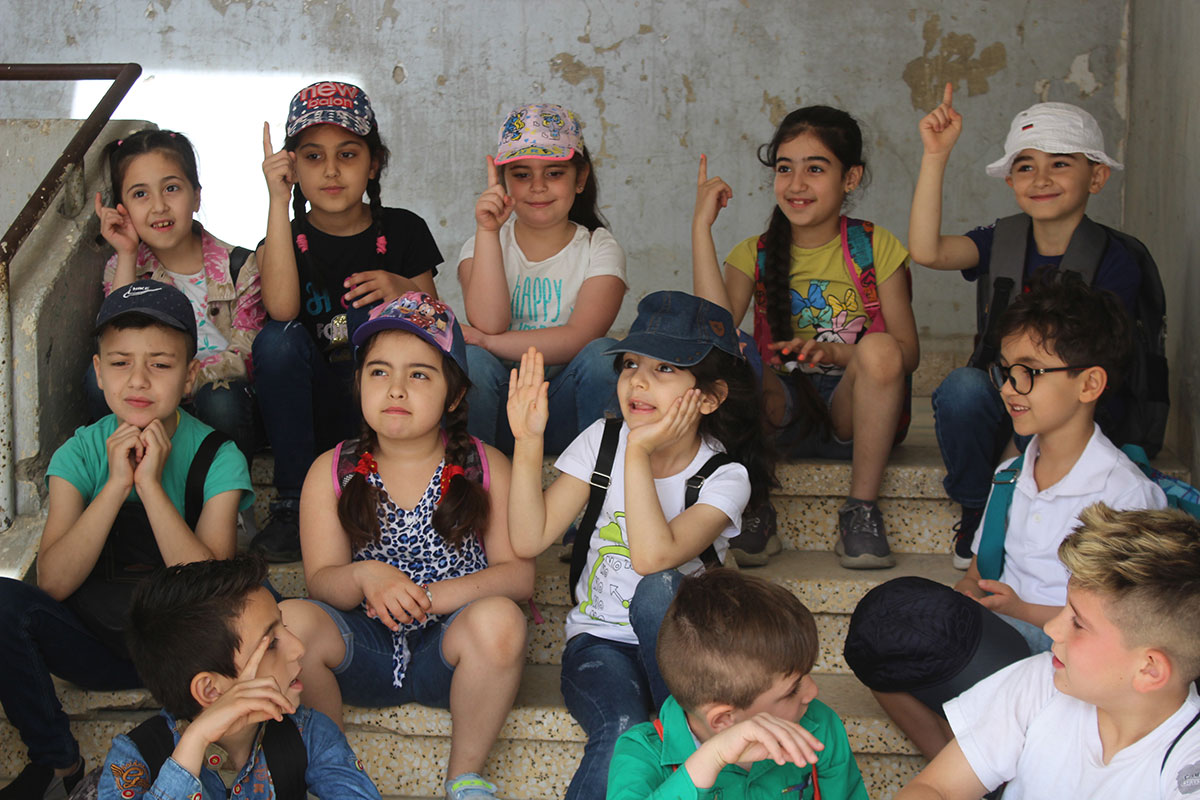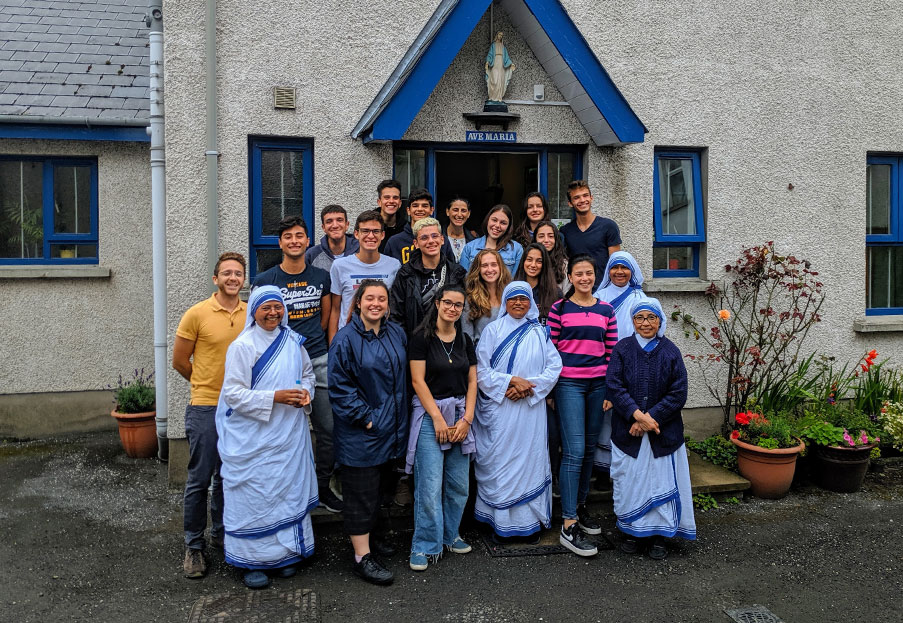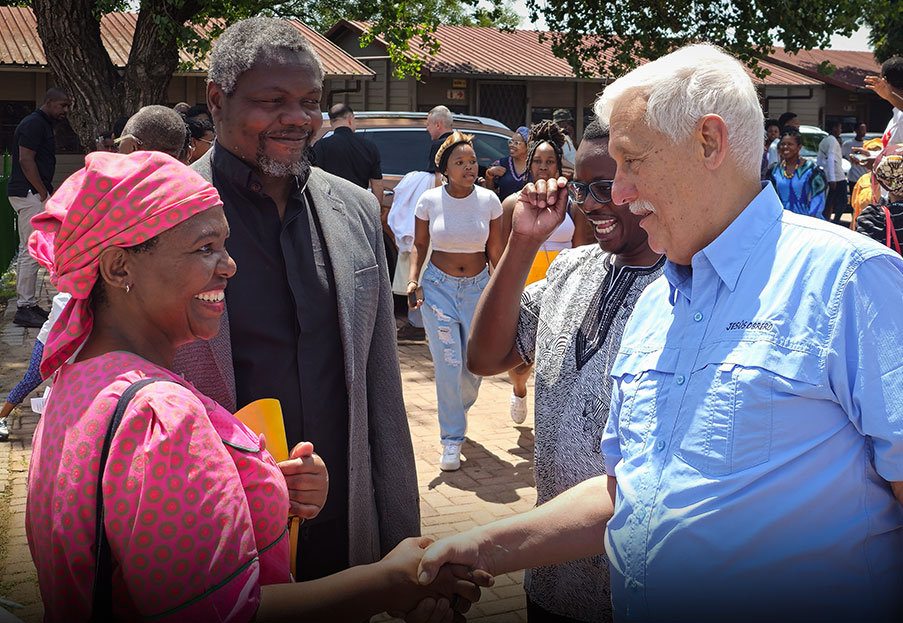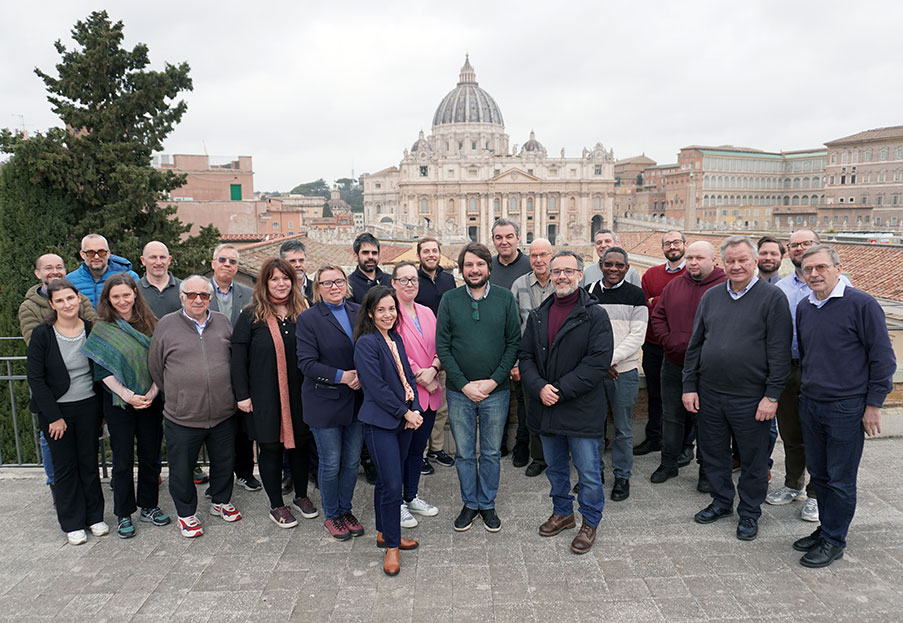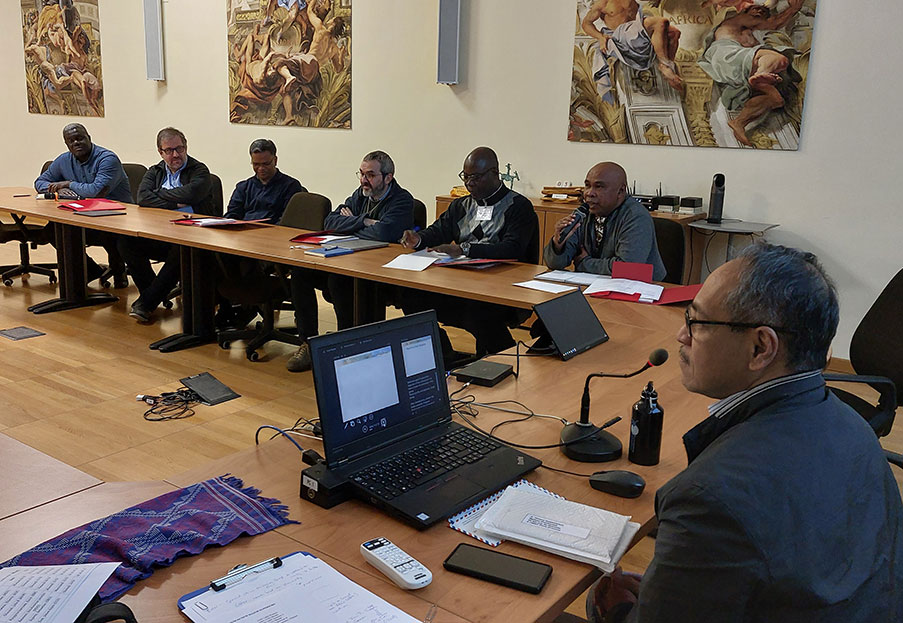Serving young people in a city in ruins
Vincent de Beaucoudray, SJ - Province of
French-speaking Western Europe, Regent in the Near East Province
[From “Jesuits
2023 - The Society of Jesus in the world”]
A conversation with young Syrians about the reality of their lives and the pastoral support they are receiving in a country ravaged by war.
The war ended seven years ago here in Homs, Syria, but times are really tough: the economic crisis is devastating, salaries tend to be somewhat less than a dollar a day, unemployment rates are high and a third of the city is in ruins. So, in the midst of this reality, what is our priority as Jesuits? Offering pastoral care to young people. This option might look irresponsible, even trivial, and yet it seems to be relevant. Never before have so many young people taken part in our activities - 1,400 this year alone. That is why here “in the convent” as the young people call our centre, we devote ourselves unceasingly to weekly catechesis, parties, summer camps, retreats and short courses for group leaders.
I asked Souad, Elias, Grace, Ammar, Nabeh,
Mireille and Yazan to give us their take on what we are doing here.
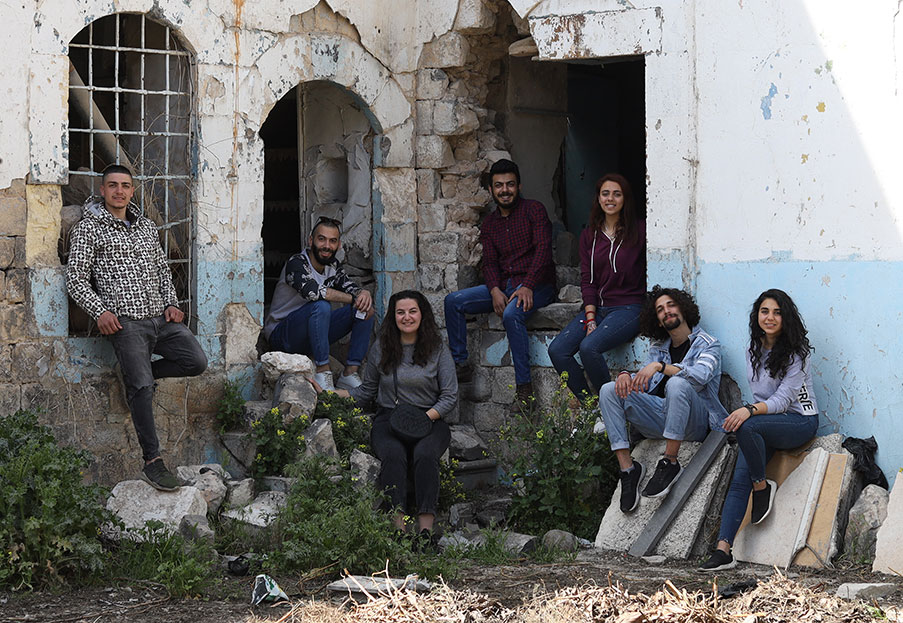
Could you share a personal memory to introduce us?
Nabeh: “I was in touch with friends who were coming here... and one day in 2019, they said: ‘Come and help us to prepare the memorial service to mark the fifth anniversary of the murder of the Jesuit, Frans Van der Lught.’ So, we rushed around the centre doing DIY. We cried too and I found this place very welcoming. It’s somewhere I feel safe.”
Elias: “I remember when the convent opened its doors again after the war. As I was walking up to the front door, I said to myself, ‘Who am I going to meet here?’ I knew that I’d meet people here, children to play with and young people to chat to. And I knew I’d feel at ease here and that we’d take really good care of each other.”
And what do you think about today when you walk in?
Elias: “You really want to know? I think about the people who will stay here after I leave... and how to help them to care for each other as well as possible... because that’s what I’ve received here and I’d like them to experience this too.” (Elijah, like 90 per cent of the young people who come to the “convent” is looking for a way to leave Syria.)
Grace: “I think about the last day of the summer camp for primary school children. We were exhausted but just seeing the look in the children’s eyes made us happy. We gave each other the energy to keep going.”
Ammar: “I remember the day you asked me to lead
a camp. On the one hand, I didn’t want to. On the other hand, I was pleased
you’d asked me... On the last night, the penny dropped. I realised I’d managed
to achieve something I never thought I’d be able to do.”
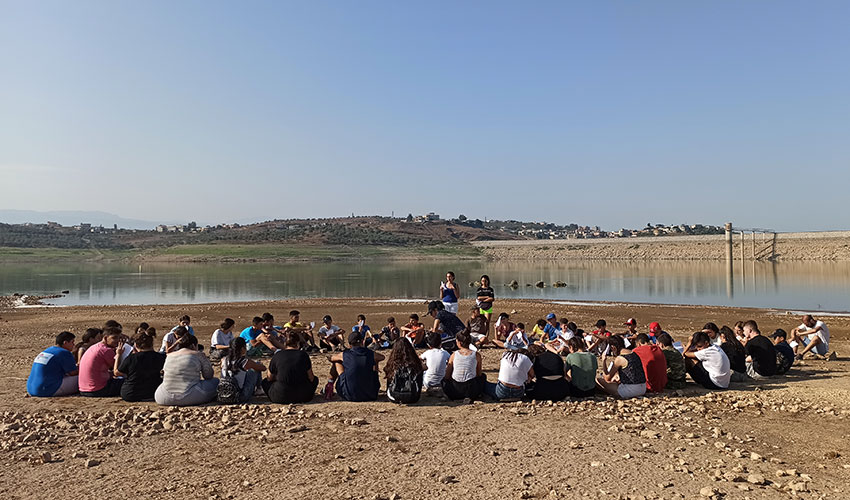
If you had to describe “the convent” what would you say?...
Grace: “The convent’s our second home! I feel even more at ease here than I do in my real one. This is where I can be myself, just as I really am...”
Elias: “Suppose you wanted to take part in a soccer championship. You’d put in the training, right? So here, it’s all about getting training for life. You’re given responsibilities. You experience the happiness they entail. You relate to people who don’t seem remotely like you, and find that you can live with them. Some of the people here are older than you are. Others are younger. And you enjoy looking after all of them!”
Mireille: “When I feel far from God, this is where I sense his call: ‘Come, take the first step. God is here and he’s waiting for you’.”
Given the very challenging times we are going through, do you think the activities we offer here are appropriate or not?
Elias: “The only thing lacking are the visas.” (The group laughs but they understand why we don’t help them to emigrate. If we did, that would be the only reason young people came here and our activities would completely lose any flavour of being offered free of charge.)
Mireille: “This is where we can forget about our problems: finding gas, the electricity running out, the collapse of the Syrian pound... All these things are left at the door... a door that’s always open. It’s a huge relief!”
Souad: “This is where we remember that there’s
more to life than just the ruins surrounding us.”
Yazan: “When we’re with the others, we couldn’t care less that it’s cold.” (In the winter, our meeting rooms are freezing.)
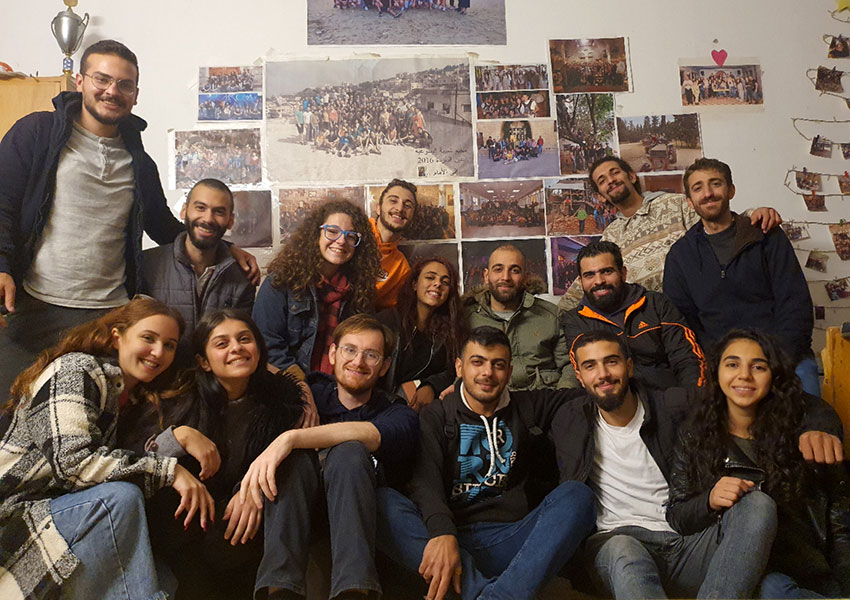
Elias: “Although we get help here, the convent is neither a superhero nor a bank. What we actually learn here is to live our lives just as they really are. We have parties. We have a laugh. We talk about what’s lovely in our lives, also what isn’t.”
Yazan: “And we get together when, to be honest, so many things could separate us.”
The hope of the Jesuits and our 140 volunteers
In fact, we’d really like to do so much more
with the young people but it is simply impossible... How can we offer them more
varied activities when even making a 50-kilometre journey is so complicated?
How can we consider different life options when opportunities here are so
limited? How can we avoid getting depressed when we know full well that what
all the young people want most of all is to leave? But the seven young people
quoted above aren’t the only ones here. In total, 140 volunteers help us to
keep this “convent” or youth centre going. And through them, we find our
strength as Jesuits so that we can encourage them to keep going in the great
adventure of life.
